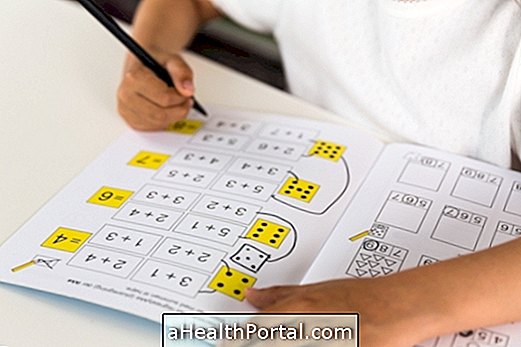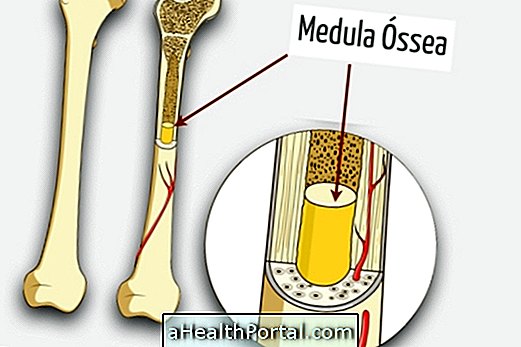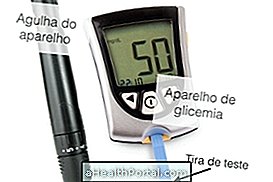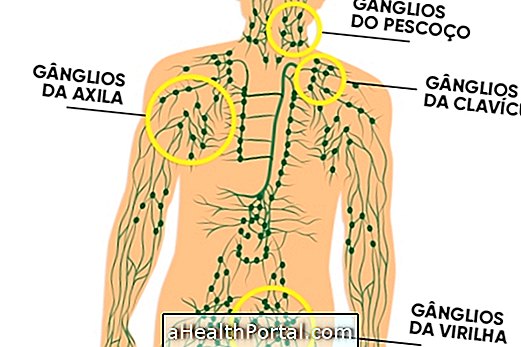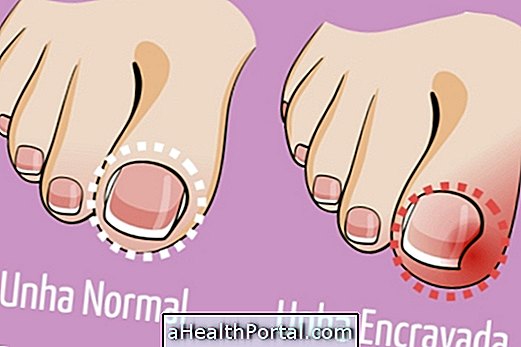Suicide in adolescence is the act of a young person between the ages of 12 and 21 taking their own lives. It usually occurs because adolescence is a period of transition, transformation and innumerable internal conflicts, and therefore there is a greater risk of depression, bipolar disorder, and giving in to pressures imposed by others or by society.
Suicidal behavior is divided into 3 phases: thinking about suicide, attempting suicide and consummation of suicide. The young man who thinks one takes his life believes that there are no solutions to his problems, and usually gives signs of an emotional imbalance but that can go unnoticed by family and friends. However, there are some signs that may indicate that your teen is thinking about this possibility. See which are these signs that may indicate the risk of suicide.
Most Common Causes of Teenage Suicide
Some factors that favor suicidal thoughts and attempts during adolescence include:
1. Depression

Depression is the leading cause of suicide in adolescence. The depressed young man prefers to be alone than going out with friends and feelings such as sadness and loneliness favor suicidal thoughts and planning. Not having a good friend or boyfriend to talk, who is able to show understanding and understand their difficulties, make life heavier and harder to bear.
- How to Cure: Seeking help from a psychologist, psychiatrist or even self help groups is important to take the anti-depressant remedies and be able to meet to talk about your feelings, seeking strategies to relieve pain and get out of depression.
2. Love or family problems

Family problems such as parental loss, separation, frequent fights and arguments, and not having room in the house to express their emotions are factors that increase the anguish and pain that the teenager feels, making him think about suicide. Not feeling loved by the partner and the lack of love and understanding in the relationship also cause the youngster to think about killing himself.
- How to solve: Finding time to talk in a calm and thoughtful way is a great help in finding a balance environment in the home or in the love relationship. Remember that everything can change with a good conversation, and more important than pointing out the other's mistakes is telling what you are feeling about each situation. So, instead of saying: you do not care and do not want to know me, you should say what you really feel, such as: I do not feel valued. This kind of speech makes the other realize that you are not in the judgment stance, but you are asking for help in expressing your emotions, being sincere, which can open the door to good conversation and understanding, sharing the pain.
3. Use of drugs or alcohol

Alcoholism and drug use also favors suicide because its use already indicates that the youngster is failing to resolve inner conflicts, going through a moment of anguish or frustration. In addition, acting on these substances in the brain modifies brain functions, state of consciousness and thinking, favoring self-destructive ideas.
- How to stop: In case of addiction it is best to seek treatment against chemical dependence, but if the use of these substances is sporadic, there is still time to leave without having to stay hospitalized. Spending time with outdoor activities can help distract the mind but the most important thing is to decide that you no longer want to use drugs or overindulge alcohol and get a good friend to vent when you feel sad or depressed.
4. Bullying

Bullying happens when other people denigrate the image or even physically attack the victim who feels helpless, which is a common situation in childhood and adolescence, although it is a crime.
- How to solve: Inform the leaders about bullying and find together a strategy for bullying to stop happening. Learn what bullying is and its consequences.
5. Emotional Traumas

Being a victim of sexual abuse or mistreatment are factors that favor suicidal thoughts because the person feels trapped by the problems and can not cope with the pain he feels every day. Over time the pain does not subside and the person is always distressed and depressed, which favors suicidal thoughts because it may seem that taking one's life is the best solution to solve the problem.
- How to deal with pain: Emotional traumas should be treated with the accompanying physician's psychiatrist, soothing remedies may be indicated to sleep better but coping with pain by participating in self help support groups is a great help for that emotional pain, and even physical, cease. Listening to the stories of others who are already in the same situation and doing tasks that are indicated in these groups is also part of the treatment to overcome the trauma. Check out the consequences and how to deal with sexual abuse.
In addition, people who have had suicide cases in the family, who have tried to take their lives, girls who became pregnant during adolescence and young people with low income and school difficulties also have a higher risk of suicide.
Another factor that should not be ignored is that hearing about it on television, radio or social networks also influences and ends up favoring people susceptible to suicide because they come to think of it as a way to solve their problems in the same way.
How to Avoid Teenage Suicide

To avoid suicidal thoughts and planning it is important to be alert to signs that may indicate that the person is thinking about taking his own life. Sudden changes in mood, aggression, depression and the use of phrases such as: 'I'm thinking of killing myself; the world would be better without me, or everything would be solved if I were not here ', they also serve as an alert.
But only identifying these signs is not enough, so it is very important to seek professional help with a psychologist or psychiatrist to define strategies to stop thinking about taking a life.
Strengthening the affective bond with family, friends, and a faith community such as the church, for example, can help to have more satisfying interpersonal relationships and increase the perception of support, thereby improving the well-being and quality of life of the youth .
If you think you have no one to help, you can contact your life support center by calling the number 141, which is available 24 hours a day.

